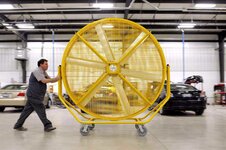Just booted my 7300 for the first time yesterday, and the first time I booted a PPC604 Mac in like, 15 years. This machine is going to be used for bus overclock testing 3 different mainboards; a 7300, a 7600, and an 8600. I am using an XLR8 ZIF Carrier with a 350MHz G3 750L, 320MB 60ns EDO RAM non-interleaved, and Mac OS 8.6.
I set it to run a 45MHz bus and 4.5X multiplier (202.5 MHz); Apple System Profiler reported a CPU speed of 200MHz. Figured it was rounding. Next set 40MHz x 4.5 (180MHz); Apple System Profiler again reported 200MHz. Seems like it's just reporting the original speed of the machine.
What software is available that will accurately report the CPU speed, if any?
Is there software that will also report the bus speed and/or multiplier?
What should I use to stress test the bus over-clocks?
I set it to run a 45MHz bus and 4.5X multiplier (202.5 MHz); Apple System Profiler reported a CPU speed of 200MHz. Figured it was rounding. Next set 40MHz x 4.5 (180MHz); Apple System Profiler again reported 200MHz. Seems like it's just reporting the original speed of the machine.
What software is available that will accurately report the CPU speed, if any?
Is there software that will also report the bus speed and/or multiplier?
What should I use to stress test the bus over-clocks?

